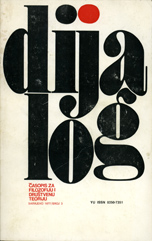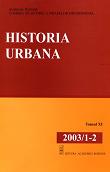Participarea minoritarilor prezenţi în Bucureşti la susţinerea morală şi materială a Războiului de Independenţă a României
Author(s): Virgiliu Z. Teodorescu / Language(s): Romanian
/ Issue: 1+2/2003
Keywords: Minorities; Bucharest; Moral Support; Material Support; Romania; Independence War
An old Romanian saying summarizes the experience of many centuries of hardships which the people of the lands between the Carpathians, the Danube and the Black Sea have faced. They say „Friendship can be proven in times of need” and so it happened between 1877-1878, when all the human, moral and material capacities of the Romanian people were called up to remove the remnants of the former domination deriving from the old treaties concluded with the Ottoman Porte. As major requirement for the complex process of modernization of the Romanian society, for the rise of a due status among the European states, the declaration and the defence of the Independence was the goal of those people who, during the previous decades, have acted to prepare the release of such an action. Although many things had been done, when the time came for the great fights, it turned out that many others were still pending and needed to be completed and suited to the resources of the future field enemies. Under such circumstances, all the Romanian people were called up to make their contribution to help the army to get proper equipment, to establish and equip medical facilities, to provide material help to the families of the soldiers, to widows and orphans. The enthusiasm of everybody, regardless of their resources or means, was catching and drove to action the citizens of other nationalities living in Romania at that time, either temporarily or for long. There were however citizens of other states who, although they considered themselves Romanians, exceptionally did not participate in the support for Romania, given that the states whose subjects they were understood to support the Ottoman Empire and even to take oppressive measures against those of a different behaviour. We think that, among the many anonymous, must have been foreign people who, for purposes of protection, chose to stay unknown. This essay refers to the presence of the foreign citizens in Bucharest, the way they acted to their honour, in order to collect funds and the use they understood to make of such collections. Moreover, following the example of doctor Carol Davila who in 1870 was by the side of the people in need during the French-Prussian war, we remind you of those rescue contributions of many aliens, physicians and sanitary personnel, who came under the sign of the Red Cross to provide medical assistance to the people in need. We may say by coherent examples that, in time of big hardships, the contributions of such aliens were a relevant example of human solidarity and laid a brick in, as the generation of the last quarter of the 20th century and the first of the 21st determined to be a major goal, the construction of the United Europe.
More...


